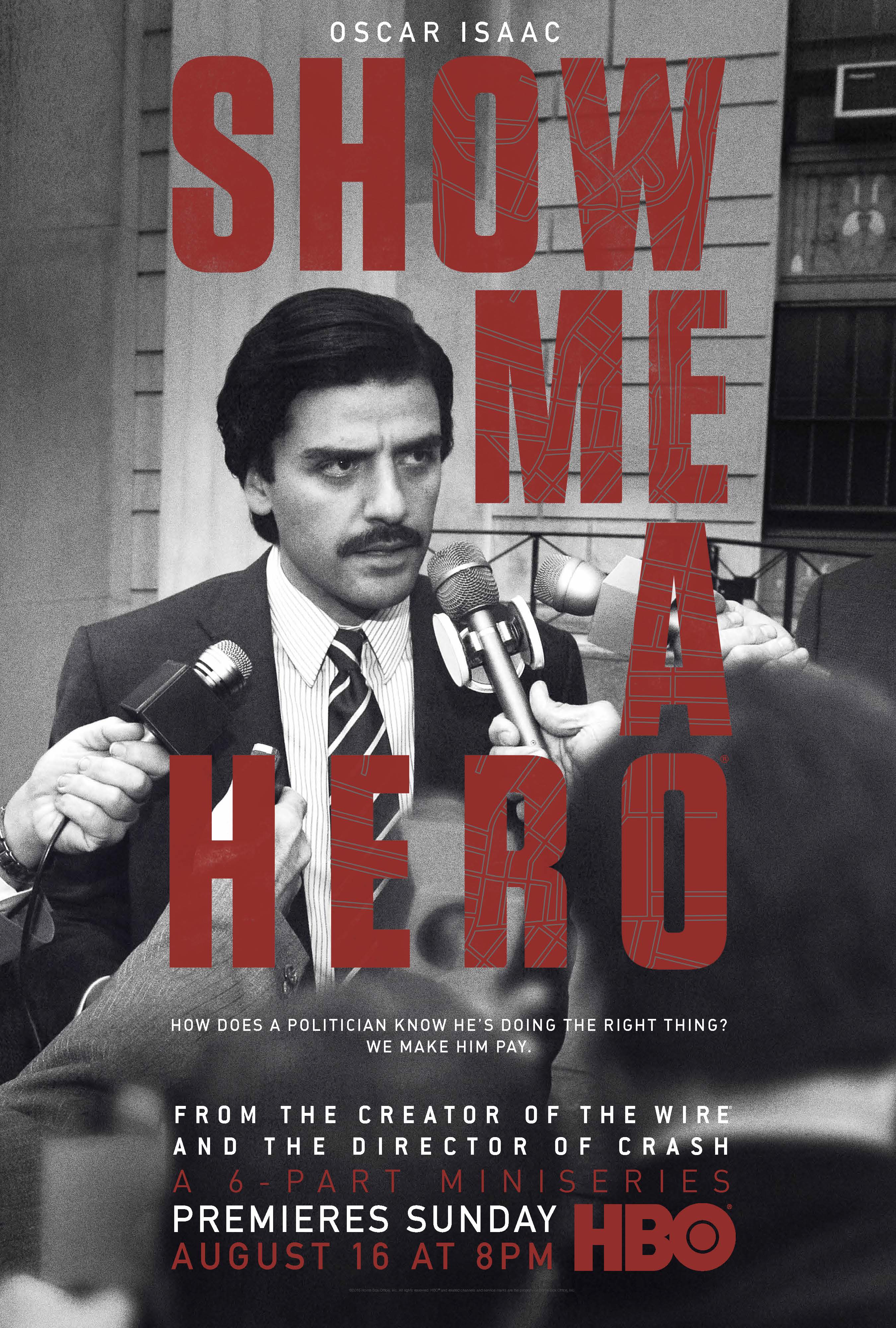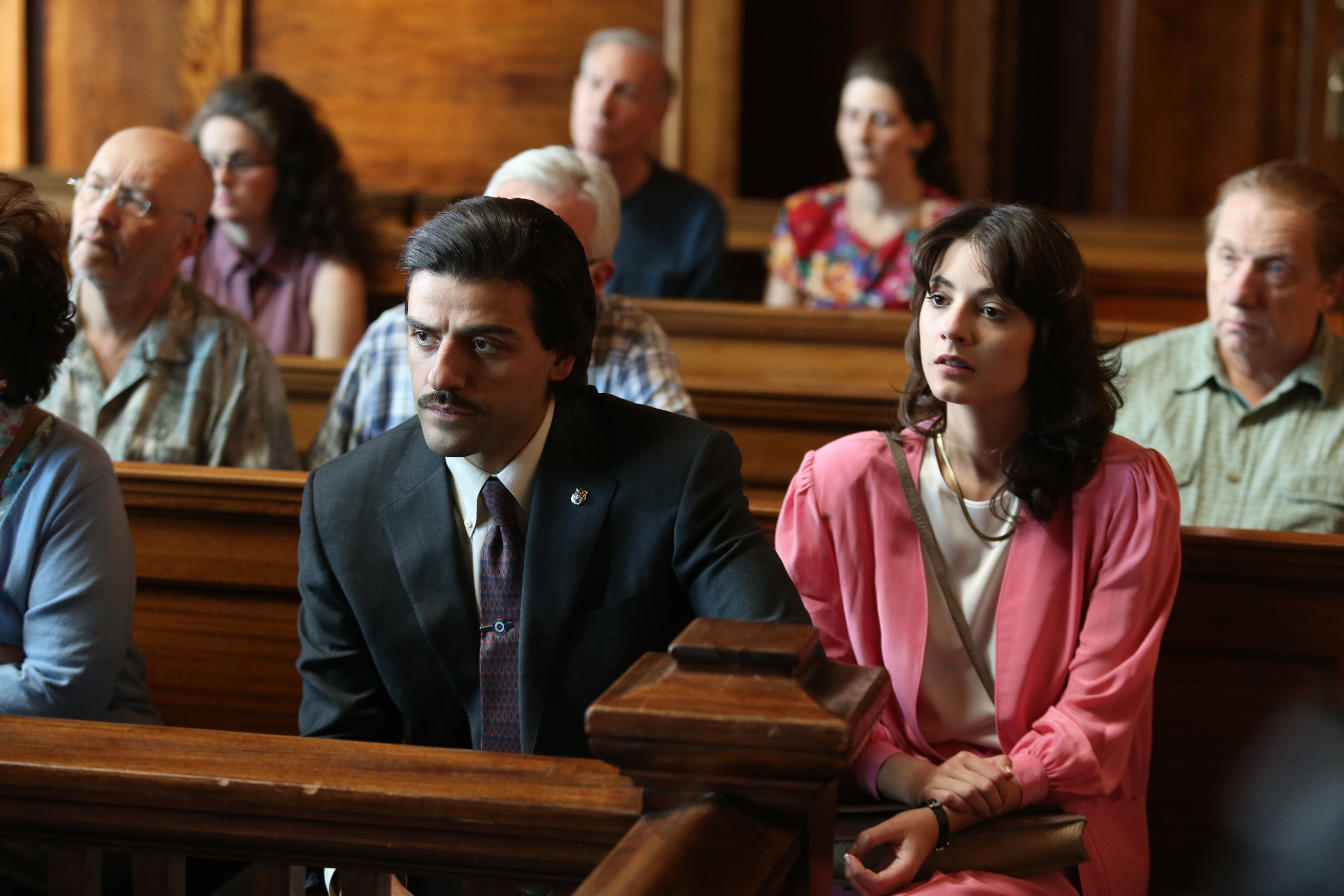HBO's 'Show Me a Hero' is an Incredible New Series on Race Relations

By:
David Simon's HBO miniseries "Show Me a Hero" depicts a time of racial unrest in Yonkers, New York set during the late 1980s and early 1990s. Despite taking place decades ago, the overall message about racial injustice and intolerance echoes present day racial tensions in the U.S., particularly in the wake of numerous recent police killings of unarmed Black people as well as the senseless shooting attack at the Charleston, South Carolina Emanuel African Methodist Episcopal Church that left nine people dead.
Directed by Paul Haggis and written by Simon, "Show Me a Hero" is based on New York Times reporter Lisa Belkin's 1999 bestselling nonfiction book that tells the true story of a tumultuous decision surrounding public housing in Yonkers, New York many years ago. Yonkers, a city that once had a white population of more than 75 percent in 1990, was sued for intentionally keeping the city segregated for decades by building housing projects on the opposite side of the Saw Mill River Parkway. Federal Judge Leonard B. Sand started working on the case in 1980 and ruled in the late 1980s that Yonkers could not combat a desegregation plan to build 200 low income housing units in the white neighborhood of Yonkers. Many Yonkers residents resisted and effusively protested the segregation efforts, showing absolutely no restraint in their interactions with city politicians trying to figure out what to do.
The tragedy of Nick Wasicsko
One such politician was Nick Wasicsko (portrayed by actor Oscar Isaac), a young city councilman who decided to run for mayor of Yonkers, ultimately becoming the youngest mayor of a big American city. He successfully beat then-mayor Angelo Martinelli by pandering to the Yonkers residents who were violently against the public housing and voted to appeal the judge's ruling. Once he took office, however, he changed his tune. The appeal was rejected and Wasicsko had to follow Sand's decision.
 HBO
HBO
In the series, Wasicsko does the right thing and quickly becomes hated by the white majority of Yonkers, with resident Mary Dorman (played by Catherine Keener) throwing a diaper at him during a city meeting about the housing project and another constituent spitting on him. The strain on Wasicsko is visceral as he swiftly goes from a naive and hungry politician to a well-worn mayor who has to stop himself from lunging at angry Yonkers residents and takes Maalox to deal with the stomach issues associated with his stress. In addition to his wife, Wasicsko turns to his late father for guidance by frequently visiting his grave and talking out loud to dad. Sadly, Wasicsko's life ultimately ended in a suicide beside his dad's headstone in the early 1990s.
 HBO/Paul Schiraldi
HBO/Paul Schiraldi
Unfortunately, he was hardly the only one in Yonkers with problems. Once the housing projects are built in the series, many of the white residents of Yonkers react with immense hostility towards the Black residents in low income housing. The white residents call them racial slurs, vandalize their property, hold protests, let their dogs go to the bathroom on their lawns without cleaning the mess up, and stare, among other things. It's not until things get really out of hand that Dorman asks herself for the first time why she and the other whites are so arbitrarily hateful towards these new members of the community.
A surprising racial divide in New York
“This [racial divide] is what surprised me,” Simon's writing partner William F. Zorzi said in a recent interview. “The reaction, the opposition group, the constituents and how vehement they were. It was very difficult for me to believe. (I thought,) ‘This is an exaggeration.’ It is 1987, 1988, this is well north of the Mason-Dixon Line, not Mississippi in 1962. Then, having seen the TV footage, it was ‘Holy s---! These people are nuts.’ It was very real. It was just as crazy as it looked.”
LaTanya Richardson Jackson, who portrays one of the Yonkers public housing residents in the show, told New York Daily News that it is unfortunate this kind of racism is still a major problem in America today.
“You have to remember, this was New York, and Yonkers wasn’t on the map in that way,” she said. “I just think it is unfortunate now, as we fast-forward, that we are still dealing with a lot of the root issues that they were dealing with... Maybe we could learn something of what has happened in order to get on a track that puts us on a different path other than the one we seem to be traveling on. Maybe it will show us the possibilities of how we go forward.”
Racial injustice in America today
The release of "Show Me a Hero" comes two months after the devastating racially-charged shooting at Charleston's Emanuel African Methodist Episcopal Church that resulted in nine deaths and a year after the death of unarmed Black men Eric Garner and Michael Brown, both of whom were killed by police officers. Decades after Yonkers public housing residents fought for equality, the #BlackLivesMatter movement has taken hold of the country in pursuit of the same cause.
